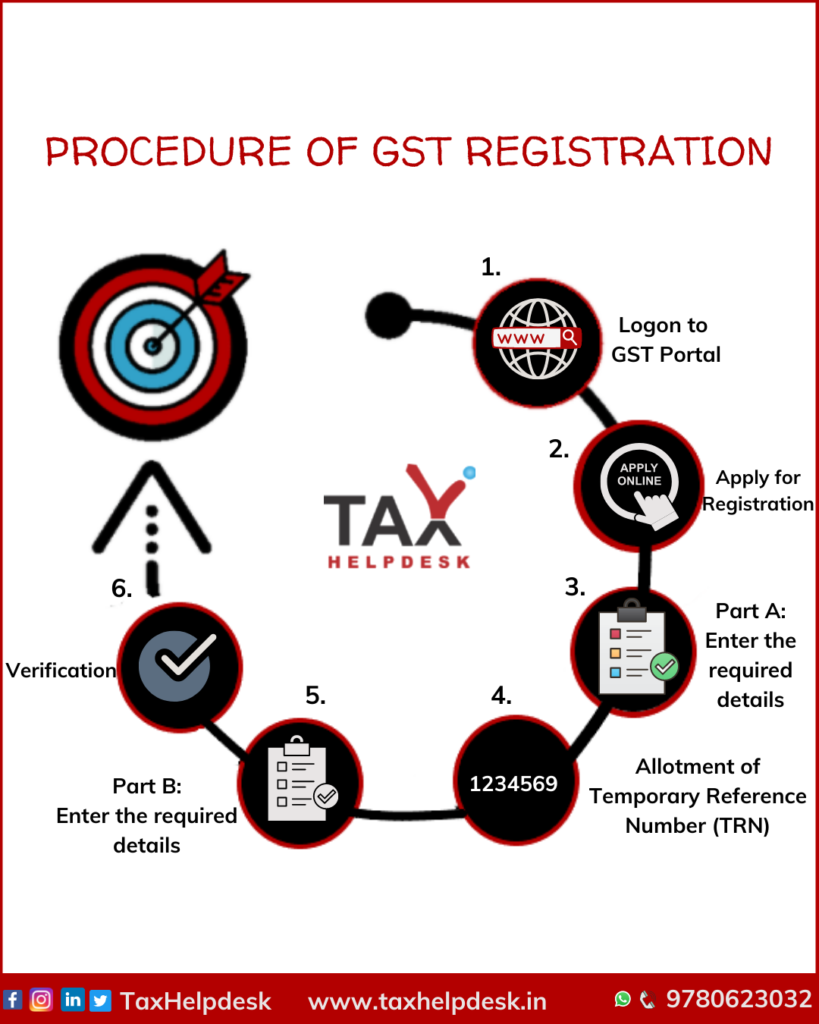Step-by-Step Process for Singapore GST Registration Explained
The Ultimate Guide to Simplifying the GST Registration Process and Needs for Small Service Owners
.jpg)
Understanding GST Fundamentals
To comprehend the basics of the Item and Provider Tax Obligation (GST) system, little service proprietors need to initially recognize its underlying effects and concepts. GST is a value-added tax obligation levied on many products and services for domestic intake. It intends to streamline the taxation process by replacing several indirect tax obligations imposed by the state and central federal governments. Under the GST routine, organizations are called for to accumulate and sign up tax obligation on part of the federal government, making certain openness and conformity.
One of the essential concepts of GST is input tax obligation debt, which allows services to assert credit rating for taxes paid on their purchases. Comprehending these standard concepts is essential for little service proprietors to browse the intricacies of the GST system and make certain compliance with the law.
Eligibility Criteria for Registration
Having established a foundational understanding of GST concepts, small company proprietors have to currently fulfill details qualification standards to proceed with the enrollment procedure. In India, entities engaged in the supply of items or solutions with a yearly accumulation turn over exceeding Rs. 40 lakhs (Rs. 10 lakhs for special group states) are required to register for GST. Furthermore, specific organizations such as those involved in inter-state supply of goods, casual taxable individuals, and those called for to pay tax obligation under the reverse cost system need to sign up for GST irrespective of their turn over. Organizations that were signed up under the previous tax regime (VAT, solution tax, etc) are additionally mandated to sign up under GST. Agricultural businesses that just supply produce out of key production are excluded from GST enrollment. It is important for company owners to meticulously analyze their qualification based on these standards to make sure compliance with the law and avoid any kind of charges for non-compliance.
Papers Needed for GST Registration

Simplified Enrollment Refine Steps
Complying with the collection and verification of the requisite documents, the registration procedure for GST can be browsed with a series of simplified steps developed to help with effective compliance for local business owners. The initial step entails checking out the GST portal and selecting the 'New Enrollment' option. Consequently, the applicant has to fill out Part A of the try this web-site GST REG-01 type with details such as frying pan, mobile number, and email address to acquire an OTP for verification. As soon as the OTP is gotten and entered, a Momentary Recommendation Number (TRN) is produced for additional procedures. The next step requires filling in Part B of the form with necessary business details, publishing supporting files, and completing the verification process utilizing DSC or EVC. Lastly, upon successful confirmation, an Application Recommendation Number (ARN) is provided, indicating the conclusion of the GST enrollment procedure. By complying with these simplified actions, local business proprietors can properly register for GST and ensure conformity with tax obligation policies.
Tips for Ensuring Conformity
To keep governing adherence and operational stability, diligent oversight and positive measures are pivotal in guaranteeing compliance with GST demands for small company owners. Local business proprietors have to stay upgraded with GST policies, filing due dates, and any changes in tax obligation prices to stay clear of charges and keep an excellent standing with tax obligation authorities. One essential idea for compliance is to maintain exact and detailed documents of all deals, including receipts, expenditures, and billings connected to GST. Consistently resolving financial documents with GST returns can assist in determining and remedying any disparities immediately. In addition, carrying out regular internal audits or seeking specialist assistance can ensure that the service is following all GST regulations properly. It is likewise vital for small company proprietors to buy GST-compliant accountancy software program that can streamline the tax filing procedure and minimize errors. Finally, address attending GST understanding workshops or training programs can boost understanding and conformity with GST guidelines, inevitably benefiting business in the future.
Conclusion
To conclude, local business owners have to recognize the essentials of GST, satisfy the qualification criteria, collect essential files, and comply with the simplified registration procedure steps to ensure conformity. By streamlining the GST enrollment process and needs, small company owners can prevent charges and operate their businesses efficiently within the lawful framework - Singapore GST Registration. It is essential for small company proprietors to remain enlightened and compliant with GST policies to maintain an effective organization procedure
Tiny service proprietors looking for GST enrollment have to ensure they gather and submit the needed files to complete the enrollment process successfully. The papers needed for GST registration generally include evidence of company enrollment or unification, PAN (Permanent Account Number) card of the service identity, address and entity evidence of the promoters/partners/directors, pictures, address evidence of the area of organization, financial institution account statements or terminated cheques, and permission types. Attending GST understanding workshops or training programs can boost understanding and compliance with GST guidelines, inevitably profiting the business in the long run.
By streamlining the GST enrollment procedure and requirements, little business owners can avoid penalties and operate their businesses why not find out more efficiently within the lawful framework. It is essential for small service proprietors to remain compliant and informed with GST policies to keep an effective business procedure.